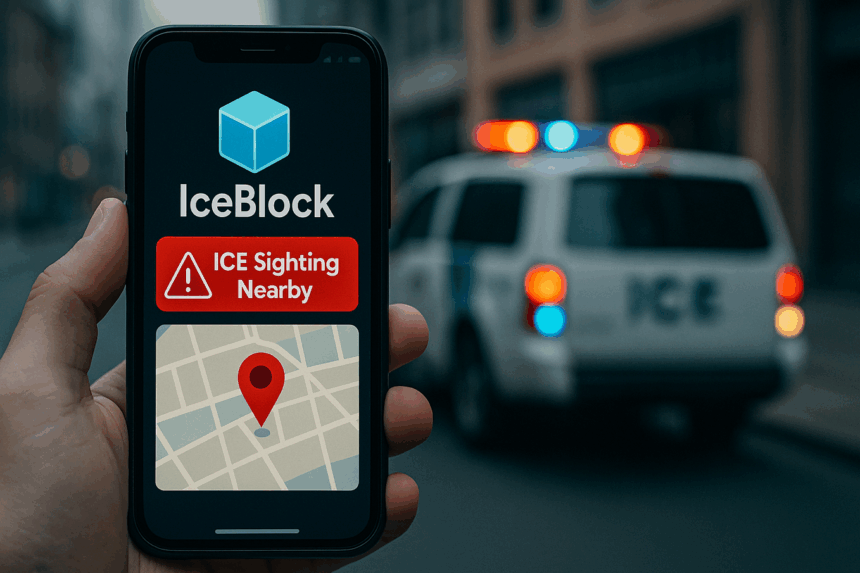A new iPhone app called IceBlock helps users alert their community to the presence of nearby Immigration and Customs Enforcement (ICE) agents. Launched in April 2025, the app provides real-time notifications when ICE is spotted within a five-mile radius. It has gained rapid popularity but also sparked controversy amid heightened immigration enforcement in the U.S.
What’s Happening & Why This Matters
Joshua Aaron, a tech industry veteran, created IceBlock in response to the increased immigration crackdowns under President Donald Trump. The app enables anonymous users to pin the locations of ICE agents on a map and add notes about their uniforms or vehicles. Other users nearby then receive push alerts, giving them an early warning to avoid encounters.
Aaron says he was motivated by the harsh immigration policies and compares the situation to historical events in Nazi Germany. He stresses that IceBlock is meant to inform and protect people, not to incite violence or obstruct law enforcement.
Privacy is a key feature: IceBlock collects no personal data and keeps user reports anonymous. Only iOS users can access the app, as replicating these privacy safeguards on Android is more difficult.
Despite its grassroots support, IceBlock faces criticism from the Trump administration and ICE officials. ICE Acting Director Todd Lyons said the app “paints a target on federal law enforcement officers,” citing a sharp increase in assaults on agents. DHS Secretary Kristi Noem has called on the Department of Justice to investigate media coverage of the app for potentially encouraging lawbreaking.
Meanwhile, critics warn that the app could increase tensions between communities and immigration authorities. Still, Aaron emphasizes that users should not interfere with ICE operations.
IceBlock’s rise highlights tensions over immigration enforcement, digital activism, and privacy in a divided political climate. It also reflects how technology can empower communities to respond to government actions in real time.
TF Summary: What’s Next
IceBlock exemplifies how apps can mobilize users for social awareness and protection in the face of controversial policies. Its success and backlash underscore challenges in balancing safety, privacy, and law enforcement transparency.
Future developments may include broader platform availability and enhanced privacy tools. Authorities and communities will continue to debate how technology shapes immigration enforcement and civil rights.
— Text-to-Speech (TTS) provided by gspeech


